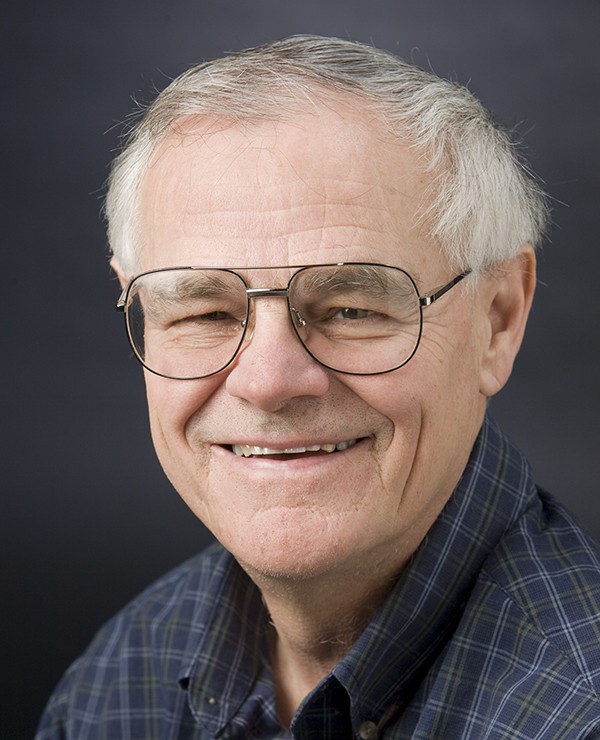Michael Walter, environmental engineer, dies at 75
By Krisy Gashler
Michael Walter, professor emeritus and former chair of the Department of Biological and Environmental Engineering (BEE), who was known for his affability and inclusivity, died Nov. 5 in Lansing, New York. He was 75.
Walter joined the Cornell faculty in 1975, where his research focused on sustainable development, particularly at the nexus of water, food and energy. During his 40-year career at Cornell, Walter conducted research that benefitted farms, watersheds and communities in New York, Asia, Africa, South America and India; in the 1980s, Walter and his family lived in India, where he led soil and water management projects for USAID.
Walter’s oldest son, M. Todd Walter, also a professor in Biological and Environmental Engineering, recalled when the Bangladeshi government asked his father to find ways to optimize the ponds that were created when people built high hills to avoid flooding their houses.
Walter traveled around the country asking people what they did with the ponds, and learned that they were using them for irrigation, cleaning, raising fish, watering animals, bathing and drinking during drought periods, among other things.
“He went back to governmental agencies and told them that he did not think he could optimize the use of those ponds beyond what the people living next to them had already imagined,” Todd Walter said. “In short, he was an Ivy League professor who was always eager to learn from everybody else, especially those far removed from power or privilege.”
Norman Scott, a fellow emeritus professor of BEE, described Walter as affable and engaged, with a unique sense of humor and a deep commitment to applied research.
“Mike’s work, whether in New York’s North Country or the Chesapeake or India, was focused on avoiding pollution and contamination in the environment due to agriculture,” Scott said. “At that time, extension work tended to be much more tightly focused on New York farming communities, but Mike was ahead of his time in seeking out and seeing the benefit in international research, as well.”
Walter also helped develop an international graduate student research program that enabled dozens of BEE students to conduct research around the world – another effort that was ahead of its time, Scott said.
Walter was appointed chair of what was then known as the Department of Agriculture and Biological Engineering, and oversaw the department’s transformation to Biological and Environmental Engineering, with a broader focus that encompassed environmental protection and drew many more students, Scott said. Teaching and advising students was one of Walter’s greatest joys and his proudest legacy, he said.
“He was always engaged with students, both undergraduate and graduate; he was one who felt that, even at a research-intensive university, teaching was exceedingly important,” Scott said. “If you asked Mike what his greatest legacy was to the university, he would say it was advancing the education and the development of many young people.”
Allison Pelletier, who served as Walter’s administrative assistant for 10 years while he was department chair, said Walter valued personal interactions and always made the person he was talking with – whether student, staff, faculty member or visitor – feel important and valued.
“When somebody walked into his office, it didn’t matter who they were, or if they were expected. That person was his priority. He would listen to them with his whole self,” Pelletier said. “He valued every human being he encountered.”
Walter won many awards for his service, advising and research at Cornell, including the College of Agriculture and Life Sciences Faculty Service Award, the Kendall S. Carpenter Memorial University Advising Award, the College of Engineering James and Marsha McCormick Outstanding Advisor Award (twice), and numerous awards from the American Society of Agricultural and Biological Engineers, where he was named a fellow.
Michael Faivre Walter was born December 5, 1945 in DeKalb, Illinois. He grew up in a farming family. He earned a B.S. in agricultural engineering in 1968 and an M.S. in hydrology in 1970, both from the University of Illinois, and his Ph.D. in water resource engineering from the University of Wisconsin in 1974.
Walter is survived by his wife, Dianne, seven children and 25 grandchildren.
Krisy Gashler is a writer for the College of Agriculture and Life Sciences.
Get Cornell news delivered right to your inbox.
Subscribe

